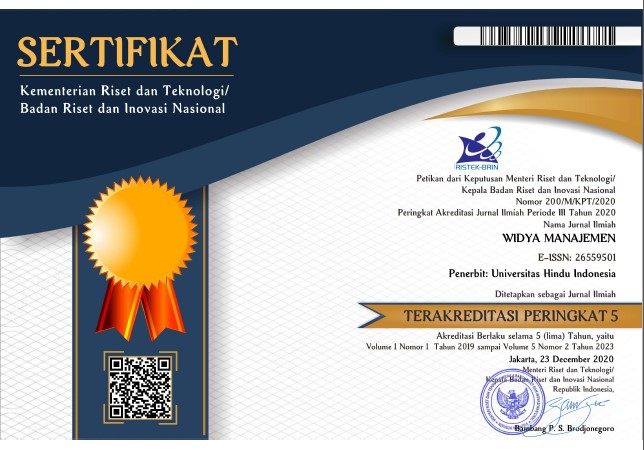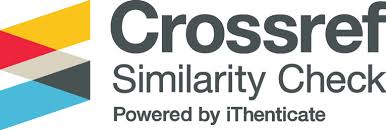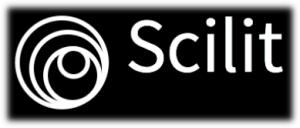Dampak Media Sosial Instagram Pada Kawasan Smart Heritage Market Pasar Badung
Abstract
The use of social media today is enormous, almost all circles use social media both in terms of communication and obtaining a variety of information. This is marked by the easiness of accessing information through digital media. Pasar Badung is the largest market in Bali, located in the center of Denpasar on Jalan Gajah Mada. The concept of market digitization and smart heritage market embedded in Pasar Badung facilitates interaction between sellers and buyers. The free Wifi in this market can be used as a promotional vehicle for sellers to introduce their products to buyers or tourists. The purpose of this study was to determine how the impact of social media Instagram on interest in visiting the Smart Heritage Market Pasar Badung Denpasar area. This study was designed using quantitative methods with multiple linear regression analysis. This study focuses on social phenomena and on giving a voice to the feelings and perceptions of informants. The population in this study is the number of followers taken from two Instagram accounts, namely; @InfoDenpasar as many as 1.000.000, and @DenpasarTourism as many as 4.480 followers, while from Tagar (#), there were 14.000 tags/posts from #pasarbadung and 1000 tags/posts from #tukadkorea with a sample of 155. The results showed that the use of social media Instagram was from general characteristics respondents indicated by males aged 17-30 years, the majority of whom live in Bali. Instagram has a real effect or impact on visiting interest. Based on the analysis of the five dimensions of the role of social media Instagram, namely participation, openness, conversation, community, and connectedness, where conversation, community, and connectedness are combined in one dimension, namely communication, communication dimensions, and openness are very influential on visiting decisions.
References
Adinda, S., & Pangestutu, E., 2019. Pengaruh Media Sosial Instagram @exploremalang Terhadap Minat Berkunjung Followes Ke Suatu Destinasi. Jurnal Administrasi Bisnis (JAB) Vol. 72 No.1
Albarq, Abbas N. 2014. Measuring the Impacts of Online Word of Mouth on Tourists’ Attitude and Intentions to Visit Jordan: An Empirical Study. International Business Research; Vol. 7, No.1.
Ardhana, I. K., 2005. Penataan Nusa Tenggara Pada Masa Kolonial 1915-195, Raja Grafindo Perkasa
Ayuningtyas, D., & Rayhani, M. (2018). Analisis situasi kesehatan mental pada masyarakat di Indonesia dan strategi penanggulangannya. Jurnal Ilmu Kesehatan Masyarakat, 9(1), 1-10.
Bhaskara, Indra. 2017. Media Sosial dan Industri Pariwisata di Bali. Universitas Udayana: Denpasar
Budiharjo, E., 1994. Percikan Masalah Arsitektur Perumahan, Perkotaan, edisi 3. Gajahmada University Press, Yogyakarta
Dataindonesia.id. (2022, Agustus 3). Pengguna Instagram Terbesar Keempat. Retrieved from dataindonesia.id: https://dataindonesia.id/Digital/detail/pengguna-instagram-indonesia-terbesar-keempat-di-dunia
Denpasarkota. (2020, November 2020). Denpsarkota.go.id. Retrieved from www.denpasar.go.id: https://www.denpasarkota.go.id/berita/pasar-badung-pasar-tradisonal-terbesar-di-bali
Entas, D., & Widiastiti. 2018. Kawasan Heritage jalan Smart Heritage Market Pasar Badung Sebagai Upaya Pelestarian Kawasan Kota Tua Denpasar Bali. Jurnal Industri Pariwisata. Vol 1, No 1ss
Ghozali, Imam. 2011. Aplikasi Analisis Multivariate Dengan Program IBM SPSS 19 (edisi kelima). Semarang: Universitas Diponegoro.
Hasibuan, Malaya S.P., 2011. Manajemen Sumber Daya Manusia. Jakarta: Bumi Aksara
J. Paul Peter, Jerry C. Olson. 2000. Perilaku Konsumen dan strategi Pemasaran. Edisi keempat. Jilid I. Jakarta: Erlangga
Kertamukti, R. (2015). Strategi Kreatif dalam Periklanan: Konsep Pesan, Media.
Kotler, Philip., 2003. Manajemen Pemasaran, Edisi Milenium diterjemahkan Benyamin Molan, Jakarta: PT Prenhallindo
Kotler, Philip. 2005. Manajamen Pemasaran, Jilid 1 dan 2. Jakarta: PT. Indeks Kelompok Gramedia.
Mariani. 2018. Upaya Promosi Potensi Wisata Kota Denpasar Berbasis Media Sosial. Jurnal Pariwisata dan Budaya Universitas Bina Sarana Informatika. Vol 9, No.2
Matin Kozak, Alain Decrop. 2009. Handbook of Tourist Behavior Theory and Practice. UK: Routledge.
Mayfield, A. 2008. What is Social Media. iCrossing
Moutinho, L. (n.d.). Strategic Management in Tourism. Glasgow: CABI.
Nasution. 2003. Metode research. Bandung: PT. BumiAksara
Nazir, M. 2014. Metode Penelitian. Jakarta: Ghalia Indonesia.
Paramitha, C. 2012. Analisis Faktor Pengaruh Promosi Berbasis Sosial Media Terhadap Keputusan Pembelian Pelanggan Dalam Bidang Kuliner (Studi Kasus : PT XYZ). 12.
Pitana, I. Gede dan Gayatri, Putu G. 2005. Sosiologi Pariwisata. Yogyakarta: Andi
Priatmoko, S. 2017. Pengaruh Atraksi, Media Sosial, Dan Infrastruktur Terhadap Keputusan Berkunjung Wisatawan Ke Desa Wisata Pentingsari Yogyakarta. Jurnal Khasanah Ilmu. Vol 8, No 1
Salusu, J. 1996. Pengambilan Keputusan Strategik untuk Organisasi public an Organisasi non Profit. Jakarta: PT. Grasindoss
Saputra, N. dkk. 2017. Pengaruh Daya Tarik Wisata Terhadap Keputusan Berkunjung Di Objek Wisata Pantai Air Manis Padang. Jurnal Fakultas Pariwisata dan Perhotelan Universitas Negeri Padang.
Sugiyono 2009. Metode Penelitian Kuantitatif, Kualitatif dan R&D. Bandung: Alfabeta
Sugiyono. 2012. Memahami Penelitian Kualitatif. Bandung: ALFABETA.
Tambunan.D.L., 2016. Pengaruh Social Media terhadap Keputusan Berkunjung Wisatawan Nusantara ke DKI Jakarta. STPB Institutional Repository. Sekolah Tinggi Pariwisaa Bandung.
Ting Ting, C., 2014. A study motives, usage, self-presentation and number of followers on Instagram Dicovery – SS Student E-Journal, 3, 1-35
Tjakraatmadja, A. T. N. (2019). Pengaruh reputasi dan kepercayaan terhadap keputusan pembelian secara online pada produk kosmetik di instagram. Agora, 7(1).
UNESCO., 1972. Convention concerning the Protection of the World Cultural and Natural Heritage. Paris: UNESCO
Wallsbeck, F. E., & Johansson, U. 2014. Instagram Marketing. Instagram Marketing: When Brands Want to Reach Generation Y with Their Communication, 1-93.
Woodside, Arch G. and Martin, Drew. 2008. Tourism Managemenet: analysis behaviour and strategy. Oxfordshire: CAB International.
Reproduction Policy
Every author submitting articles to Widya Manajemen must make a statement that the manuscript is free from plagiarism and is not being considered and published in other journals.
Articles that have been published are copyrighted by the Program Studi Manajemen FEBP UNHI. For educational purposes, the contents of the article may be duplicated or reproduced as long as the source of the article is mentioned. Written requests must be submitted to the editor to obtain permission to republish the contents of the article for purposes other than educational purposes.
-----------------------------------------------------------------------------------------------------
Kebijakan Reproduksi
Setiap penulis yang menyerahkan artikel ke Widya Manajemen harus membuat surat pernyataan bahwa naskahnya bebas dari plagiarisme dan tidak sedang dipertimbangkan dan dimuat dalam jurnal lain.
Artikel yang telah dipublikasi menjadi hak cipta Program Studi Manajemen FEBP UNHI. Untuk tujuan edukatif, isi dari artikel dapat digandakan atau direpublikasi selama menyebutkan sumber dari artikel tersebut. Permintaan tertulis harus diajukan kepada editor untuk memperoleh ijin merepublikasi isi dari artikel untuk tujuan lainnya selain tujuan edukatif.






.jpg)









